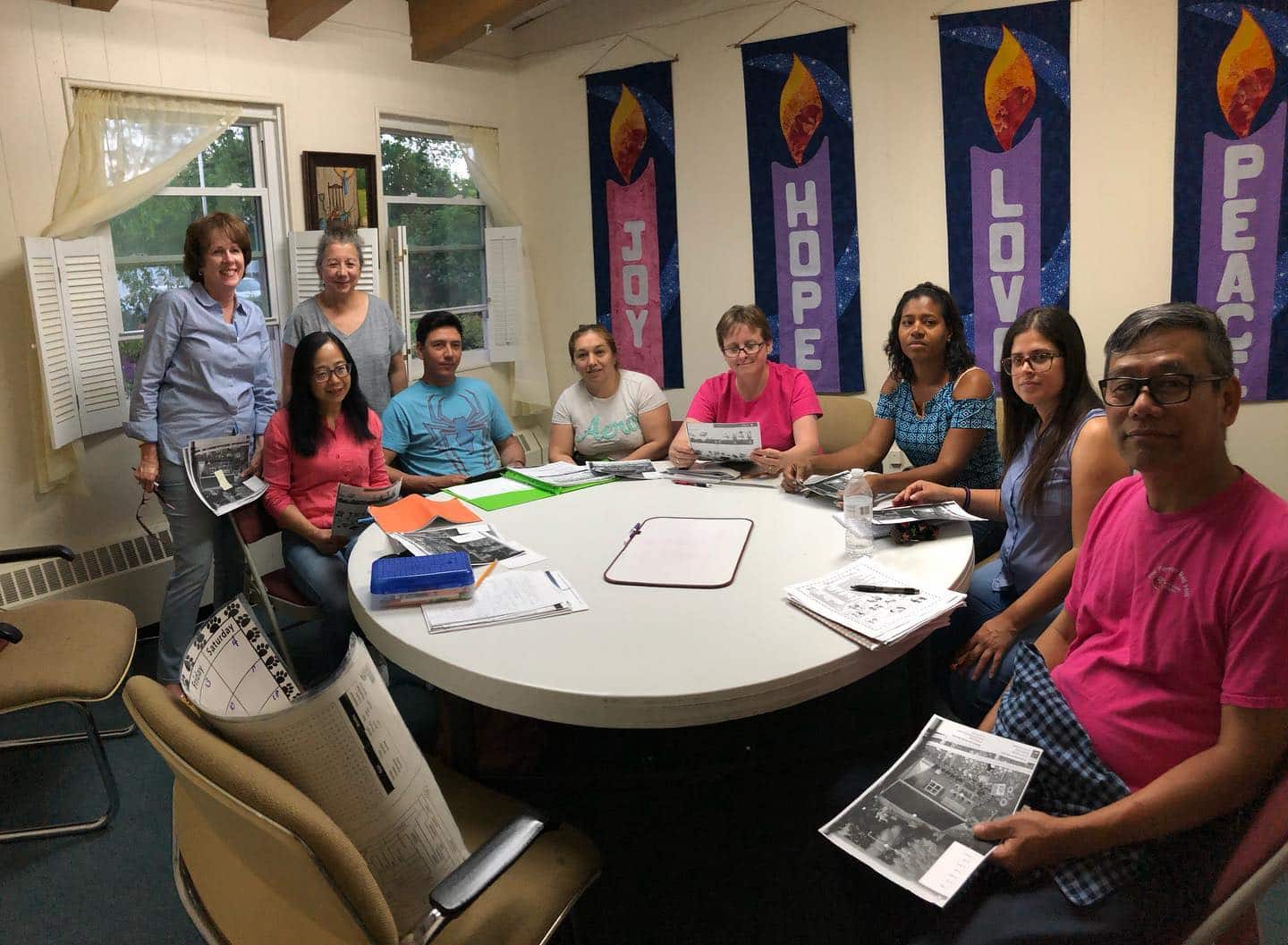Most people have heard of Babble, an online service promising the ability to learn a new language in just ten minutes a day. If you’re traveling to a foreign country for vacation this service may be handy. If, however, you’re relocating to the United States and don’t speak English well, or at all, the learning curve is a bit steeper and a few minutes a day isn’t going to cut it.
That’s where Welcoming the Stranger (WTS) comes in. For 23 years this Bucks County based educational not-for-profit has offered classes in English as a Second Language (ESL), along with computer skills training and preparation for the U.S. citizenship exam – free of charge – to more than 4,900 adult immigrants and refugees from 104 different countries.
Last year WTS provided 167 classes, including ESL, computer literacy and citizenship preparation for 275 students. This year the not-for-profit plans to offer 40 classes and serve 130 students each term. Additionally, WTS has a better than 99 percent success rate with students who take the naturalization exam, including more than 90 percent who pass on their first try.
Historically, WTS classes have been held during the day and evening in a variety of locations throughout Bucks and Montgomery Counties, as well as in neighboring New Jersey, to accommodate both students and volunteer instructors. When Covid disrupted the norm, WTS met the pandemic challenge with virtual instruction but that’s about to change come autumn.
For the first time, WTS will offer a hybrid program to accommodate more students in person or virtually. Program Coordinator Susan Roop explained that volunteers are key to the organization’s success.
“In the fall, we plan to offer both virtual classes and in-person classes, and we would love to welcome new volunteers interested in teaching in either of these programs. The more volunteers we have, the greater the number of students we can serve and the greater the impact on the well-being of the community at large,” said Roop. “We really hate telling eager prospective students that they will have to put their names on a waitlist for a class seat.”
And there are benefits for volunteers, too.
“Our nonsectarian classes are taught by an amazing cadre of committed and dedicated volunteers who joyfully and frequently admit to learning at least as much from their students as the students learn from them,” said Roop.
She added that you don’t need ESL teaching experience, that you just need a “good command of the English language, have an open heart, and a few free hours each week.”
By partnering with more than 50 organizations throughout the community, WTS is also capable of providing students with resources to find jobs, secure childcare, obtain healthcare, housing, food and even social outlets. The organization accepts no federal funds, relying instead on individual donations and foundational grants.
The impact of Welcoming the Stranger comes into clear focus with today being World Refugee Day. Established 21 years ago by the United Nations, June 20 applauds the bravery and determination of refugees who have had to flee from their homes due to civil unrest, violence or persecution. Welcoming the Stranger helps make this challenging transition a more friendly experience with small classes and a wealth of resources to help navigate day-to-day life in the United States.
To learn more about Welcoming the Stranger, to volunteer or to donate, visit their website. You’ll also find WTS on FaceBook, Instagram and Twitter.






